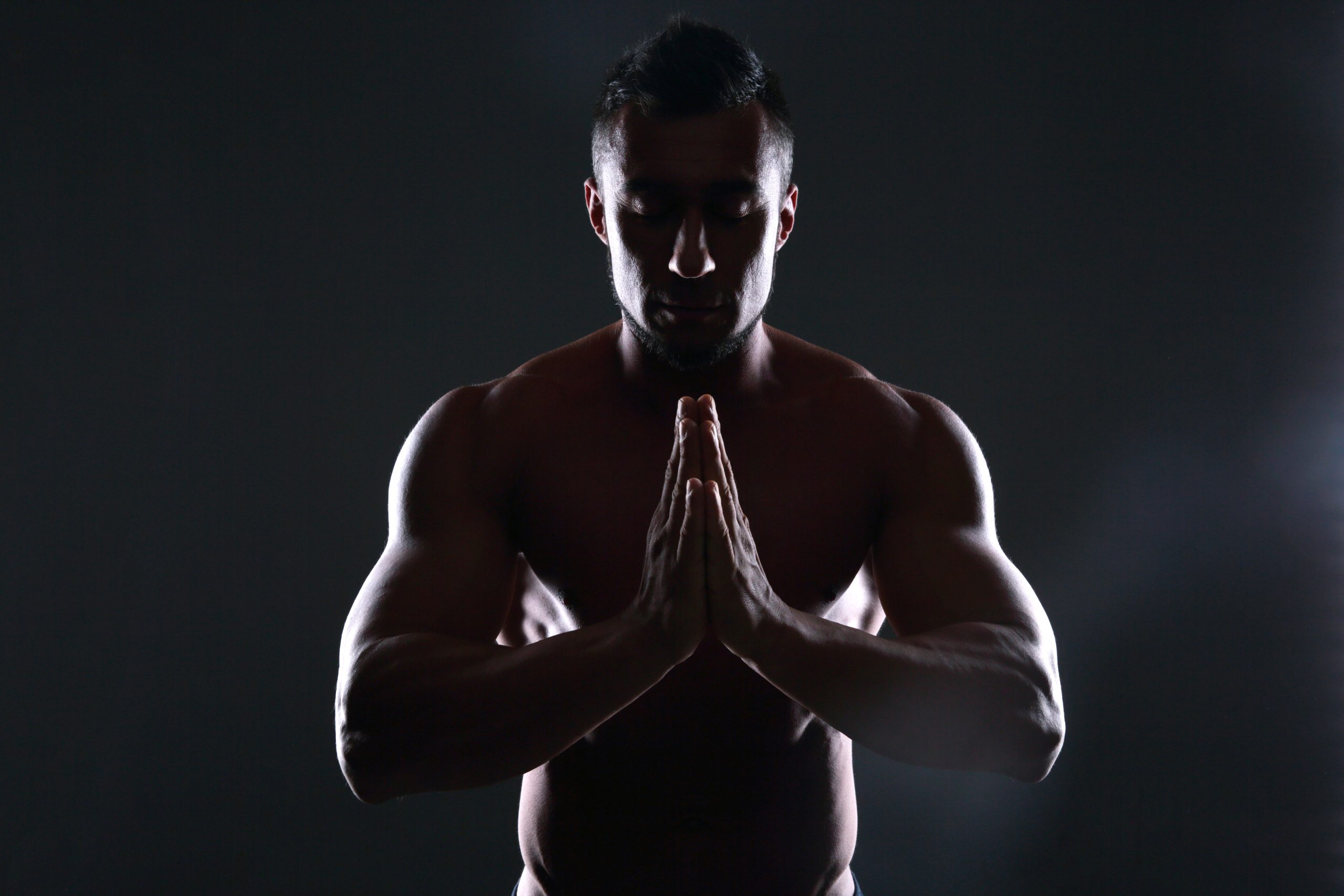Do you ever feel like your mind is constantly racing? Like there’s never enough time in the day to get everything done or that you are always one step behind? If so, know that you aren’t alone. In todays fast paced world finding even a moment of peace and quiet can be challenging. But what if we told you taking just a few minutes each day for meditation could change your life forever? Consider giving it a try – its worth exploring!
Meditation – What It Is and How to Do It
Meditation is a practice that involves directing your attention towards an object, thought or activity with the aim of achieving mental clarity and emotional stability. It entails training ones brain to filter out distractions while focusing solely on whats happening in the present moment. While many associate meditation with religious beliefs or spiritual practices it can also be practiced as a secular exercise for enhancing overall wellbeing. By incorporating this technique into daily routines individuals may experience improved cognitive function along with reduced stress levels leading ultimately to greater happiness and fulfillment.
Meditation – The Benefits of Daily Practice
Daily meditation offers numerous advantages for both your physical and mental wellbeing. Some of these benefits include:
Reduced stress and anxiety
Improved sleep quality
Improved concentration and productivity
Lowering blood pressure and reducing the risk of heart disease are two benefits that come with regular exercise. It is essential to prioritize physical activity for optimal health outcomes.
Improved happiness and wellbeing
Daily Meditation – Starting a Habit
Beginning a daily meditation routine may seem daunting initially, but its simpler than you think. Here are some tips to help get started:
To cultivate a consistent meditation practice consider setting aside specific times each day for this activity. Opting for early morning or late night sessions when things are quieter can help create an environment conducive to reflection and relaxation. By prioritizing these moments of stillness you’ll be better equipped to manage stressors throughout the rest of your busy schedule.
Sitting upright is essential for maintaining good posture and avoiding discomfort in the back or neck. To achieve this position comfortably consider using a pillow or cushion to support your spine. This will help you stay relaxed while working at any task requiring prolonged sitting periods. Remember that finding an optimal seating arrangement can go a long way towards preventing physical strain over time!
Feeling stressed out? Take a moment to close your eyes and inhale deeply. Exhaling slowly will help you feel more relaxed as you repeat this process several times until its effective for you personally. Don’t underestimate the power of deep breaths when it comes to reducing stress levels!
To cultivate mindfulness through breathing exercises requires discipline and practice. As you focus on each inhale and exhale try not to let distractions take over your thoughts completely; instead acknowledge them briefly before redirecting back towards the present moment with ease. With time this technique will become more natural allowing for greater mental clarity overall.
Meditation Myths Exposed
Many people avoid meditation due to misconceptions about the practice. Here are three prevalent myths – and why they’re untrue:
Meditation is often associated with the idea that one must cease all mental activity during practice. However this belief is unfounded as it’s impossible to completely halt our thoughts while meditating. Instead we aim for a state of mindfulness whereby we observe and release any passing notions without judgment – much like clouds drifting by in an open sky. This approach allows us to cultivate greater clarity within ourselves through focused attention on what truly matters most: being present in each moment fully alive!
The idea that meditation is only for hippies or religious zealots couldn’t be further from the truth. This practice can benefit anyone regardless of their belief system or lifestyle choices. So don’t let misconceptions hold you back – give it a try today!
Meditation is often associated with elaborate equipment or clothing but in reality all you need to practice this ancient art form are yourself and a peaceful environment. So if you’re looking for an accessible way to improve your mental health consider giving meditation a try!
Meditation Types Explained
Meditation offers a variety of practices, each with its own unique advantages. Some popular forms include:
Mindfulness meditation is a form of meditation that focuses on enhancing awareness and acceptance by paying close attention to thoughts, emotions, and bodily sensations. By practicing this type of meditation regularly individuals can cultivate greater self-awareness and improve their overall wellbeing.
Metta meditation, also known as loving kindness meditation is a practice that involves sending love and compassion to oneself and others. This exercise fosters feelings of connection and empathy towards ourselves and those around us. By practicing this form of mindfulness regularly we can cultivate greater emotional wellbeing in our lives.
Transcendental meditation is a technique that involves repeating a mantra (a word or phrase) silently to oneself. This practice helps still the mind and promote deeper relaxation. By doing so one can experience greater peace of mind during their daily routine. With regular use this method has been shown to have numerous benefits for both physical health as well as mental clarity.
Meditation – Sticking With It
Meditation may be challenging initially but with perseverance and patience it becomes more manageable over time. To help you stick to your practice here are some tips:
Meditation is a powerful tool for improving mental health and wellbeing. But starting out can be daunting – especially if you’re new to the practice or struggling with time constraints. Don’t let these challenges deter you from trying though! Even just five minutes of meditation per day will have benefits over none at all. And as your comfort level grows so too should your commitment; gradually increasing both frequency and duration until it becomes an integral part of daily life. Remember: every little bit counts when it comes to self care!
Meditation is a journey, not an overnight success story. So if you stumble along the way don’t give up on yourself or your practice! Instead take some time to regroup and come back with fresh eyes tomorrow morning. Remember that every day presents new opportunities for growth – so keep pushing forward one step at a time.
Don’t be discouraged if one type of meditation doesn’t work for you. There are many different techniques available so keep experimenting until you find what resonates with your personal preferences and needs. Don’t give up too quickly on trying out new methods!
Mindfulness in Daily Life – Applying Meditation Principles
As you start to incorporate meditation into your daily routine, it may become apparent that these principles are seeping into other areas of life as well. To further enhance this experience try bringing mindfulness practices into everyday activities such as:
Taking breaks throughout the day to check in with yourself and breathe deeply can help you stay centered. Remember that this practice is essential for maintaining your mental wellbeing during busy periods of work or study. Make it a habit!
Effective communication requires active listening skills. To truly understand someone else’s perspective practice tuning in to their words rather than simply waiting for your turn to speak. This approach will help you build stronger relationships and foster deeper connections with those around you.
To remain grounded in the present moment try using your senses as a guide. Whether its relishing an exquisite meal or admiring a stunning sunset, taking time to appreciate these experiences with all five of your senses can help you stay mindful and focused on whats happening right now.
Meditation Obstacles – Overcoming and Dealing With Them
Meditation has been shown to have numerous benefits but starting and maintaining a consistent practice can be challenging. Here are some common obstacles that may arise when practicing meditation along with strategies for overcoming them:
I don’t have enough time.” This is a common excuse people use when it comes to incorporating meditation into their daily routine. However by scheduling this practice like any other appointment you may find yourself becoming more efficient in all areas of life. Prioritizing self care can lead to unexpected benefits so why not give it a try? Start today!
My mind won’t shut up.” Don’t be alarmed if your thoughts seem to race during meditation. Instead of trying to stifle them simply observe and release without judgment. This is a natural part of the process.

I’m too stressed/anxious/depressed to meditate.” This may seem counterintuitive but it is actually the perfect time for you to start practicing mindfulness. Begin with shorter sessions and gradually increase your commitment as you become more comfortable. With regular practice, this technique can help alleviate stressors in life.
Summary
Meditation is a powerful tool that can transform your life by reducing stress levels improving mental clarity and enhancing overall wellbeing. Incorporating daily meditation into your routine could be the key to unlocking these benefits for yourself! Whether you’re new or experienced with this practice we hope our guide has been helpful in getting started on what promises to be an incredible journey towards self discovery through mindfulness – Namaste!
